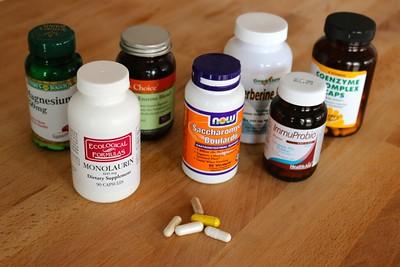Probiotics, like supplements, come under the regulatory oversight of the FDA. The agency categorizes products and their subsequent regulation based "not by ingredients or other properties," but solely through the claims, the manufacturer wishes to make. Any product that "cures, mitigates, treats, or prevents disease" is classified as a drug and follows a stringent regulatory pathway. It requires an investigational new drug application (IND) and all the safety, toxicity, and efficacy studies that result.
To avoid a costly and perhaps unsuccessful application, manufacturers market probiotics, and here you can put the name of your favorite supplement, as dietary supplements. They make structure-function rather than health claims. Health claims link a product with a specific disease; both citations must be present. Structure-function claims
"… may describe the role of a nutrient or dietary ingredient intended to affect the normal structure or function of the human body, for example, "calcium builds strong bones." In addition, they may characterize the means by which a nutrient or dietary ingredient acts to maintain such structure or function, for example, "fiber maintains bowel regularity," or 'antioxidants maintain cell integrity.'"
Additionally, they must also carry a disclaimer that they are "not intended to diagnose, treat, or prevent disease."
There are two, perhaps, unintended consequences of these rules. First, a product initially treated as a drug, may not subsequently be considered a dietary supplement. You will see this little "hiccup" play out as the FDA determines how to manage cannabidiols, CBD. Epidiolex is a form of CBD, and is approved in the treatment of some types of epilepsy; it is a drug. So it is difficult to see how the FDA will treat the plethora of CBD products marketed for wellness as supplements. It is not allowed. There is, of course, a loophole. Some prescription medications have been formulated as lesser dosages and marketed over-the-counter.
The second consequence is that researchers who wish to study a dietary supplement as a health treatment must provide proprietary manufacturer's information on their IND application; information that the manufacturer need not provide. So we will never really know whether Prevagen helps or not, no one is going to do the study. In fact, as the authors of this JAMA viewpoint note, between 2018 and 2019, there was a 31% increase in articles on probiotics and a 33% decrease in human studies of probiotics; moreover, the more current studies "fail to support earlier positive findings."
The authors believe that supplements should be held to the same standard as drugs, efficacy, and safety. Certainly, we should require the same level of safety data, we are, after all, ingesting these products, and although they are not intended to treat or prevent disease, they still carry an FDA halo, however dim. If scientists want to determine the efficacy of these products, they should not be hindered by manufacturers who block access to proprietary information; there are ways to protect their secrets. Their secrets should not include packaging snake oil as a supplement for any purpose other than to stop a snake from squeaking.
Source: The Probiotic Conundrum JAMA




